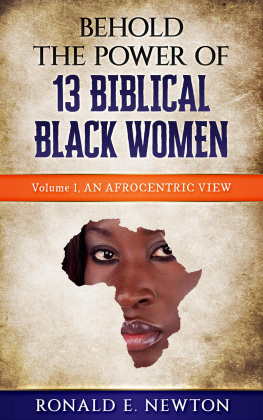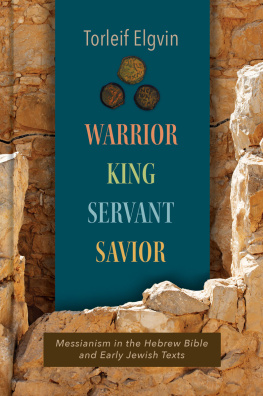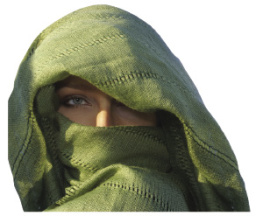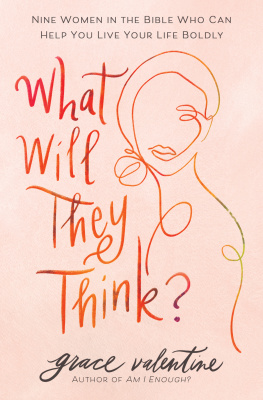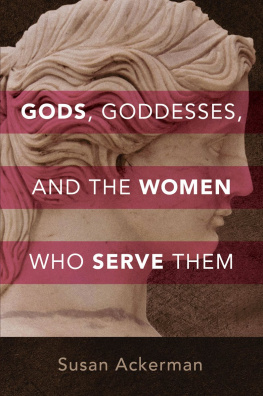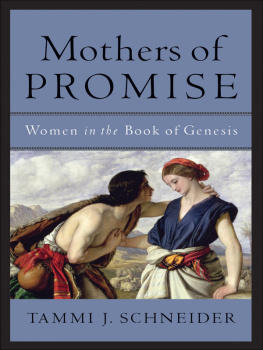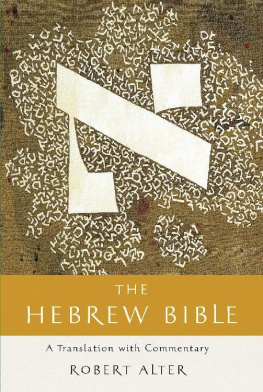More Than a Womb
Childfree Women in the Hebrew Bible as Agents of the Holy
Lisa Wilson Davison
MORE THAN A WOMB
Childfree Women in the Hebrew Bible as Agents of the Holy
Copyright 2021 Lisa Wilson Davison. All rights reserved. Except for brief quotations in critical publications or reviews, no part of this book may be reproduced in any manner without prior written permission from the publisher. Write: Permissions, Wipf and Stock Publishers, W. th Ave., Suite , Eugene, OR 97401 .
Cascade Books
An Imprint of Wipf and Stock Publishers
W. th Ave., Suite
Eugene, OR 97401
www.wipfandstock.com
paperback isbn: 978-1-62032-953-5
hardcover isbn: 978-1-4982 -8551-3
ebook isbn: 978-1-7252-4847-2
Cataloguing-in-Publication data:
Name: Davison, Lisa Wilson, author.
Title: More than a womb : childfree women in the Hebrew Bible as agents of the holy / Lisa Wilson Davison.
Description: Eugene, OR: Cascade Books, 2021 . | Includes bibliographical references and index.
Identifiers: ISBN: - - 6203 - - (paperback). | ISBN: - - 4982 - - (hardcover). | ISBN: - - 7252 - - (ebook).
Subjects: LSCH: Women in the Bible. | Bible. Old TestamentCriticism, interpretation, etc.
Classification: BS 1199 .W D 2021 ( print). | BS 1199 (ebook).
09/17/15
Scripture quotations are taken from the New Revised Standard Version Bible, copyright 1989 National Council of the Churches of Christ in the United States of America. Used by permission. All rights reserved worldwide.
This book is dedicated to women who, by choice or circumstance, are not mothers and have experienced shaming by others that they are somehow not fully a woman. You are enough.
Acknowledgments
N o book is the product of just one persons labor. I would like to thank Cascade Books and my editor, Dr. K. C. Hanson, for giving me a chance to publish this book that has been in my heart for far too long. I also want to acknowledge the late Dr. Dennis E. Smith for encouraging me to submit the proposal for the book. My progress would have been much slower if it were not for Dr. Eileen Campbell-Reed, who served as my writing coach and accountability partner in the final leg of this journey. I am grateful for Alexis Engelbrecht-Villafane, my research assistant, who helped me with the details of the book in so many ways. My employer, Phillips Theological Seminary, granted me two six-month sabbaticals to focus on the writing project. I am grateful for all of my colleagues who supported me during this process, especially the original members of the Womens Writing Group: Dr. Ellen Blue, Rev. Belva Jordan, Dr. Mindy McGarrah Sharp, Dr. Sarah Morice Brubaker, and Dr. Nancy C. Pittman. This book would not be possible without my life companion, Rev. Michael A. Davison Jr. He is the true embodiment of a supportive spouse, cheering me on and reminding me that I did have something worth sharing with readers.
Introduction
A Story
W hile it may not seem that not being a mother should be a big deal in our postmodern twenty-first century world, you would be surprised at the negative reactions I receive from folks when they learn that I do not have children: they range from pity to outright disgust. Certainly, the church is one of the realms where I receive the most negative responses from well-meaning people who indicate what a shame it is that I will never know the joy (and the pain) of being a parent. However, even in the secular and scientific world my decision is viewed as selfish or even unnatural. When my companion and I decided to finalize our decision not to have children, he spoke to his doctor about getting a vasectomy. The physician responded that he was much too young (under forty) to make such a permanent choice. My doctor, likewise, advised me to wait because I could (or perhaps would) change my mind. Eventually, when he was thirty-eight, my husband found a urologist who would perform the procedure. We have never regretted our choice.
When the local paper in the town where we lived ran a story about our decision to be what it called childless by choice, the reporter sent to interview us asked how we could reconcile our choice with the Bibles teaching that children are a blessing from God, referencing Ps :. She didnt acknowledge verse , where the psalmist describes sons as arrows in their fathers quiveran image evoking the fragility of life in the ancient world. Obviously the newspaper reporter did not realize or remember that I teach the Hebrew Bible for a living. The reporter went on to inquire about whether we were worried that without children we would not have anyone to take care of us in our old age. And I am the one who is considered selfish? Not to pick on an unknowing newspaper reporter, some of my friends who would consider themselves enlightened and feminist, and who have children of their own, indicate that I have missed out on some necessary experience for me to be a fulfilled woman. Clearly there is something wrong with me. But as Betty Rollins puts it, Women have child-bearing equipment. For them to choose not to use the equipment is no more blocking what is instinctive than it is for a man who, muscles or no, chooses not to be a weightlifter.
My experience is not unique. I have heard similar stories from other women who are not mothers about being judged harshly for not having known the joy and fulfillment of being a mom. The association of true womanhood with motherhood is prevalent in the United States even with our twenty-first-century wokeness about sexuality and gender. Even I have been influenced by the presumption that whatever I do accomplish must fit within the broad category of reproduction. In the preface to my first book, Preaching Women of the Bible , I wrote these words, While writing the book has felt like birthing a beloved child, the books completion does not mean the end of this phase of study. There are too many women whose stories have yet to be studied and preached. This book is but my firstborn. When I wrote the book, my companion and I had already decided not to have children, yet the only vocabulary I had for describing the writing process evoked the birthing of children. With these words, I had unintentionally motherized myself. Motherize is a word that I use (and probably coined) to describe the process by which a woman who is not a mother is made to become like a mother so that others feel more comfortable. This has happened to me numerous times in churches, where on Mothers Day all mothers are recognized (usually by receiving a flower), and Im included because no one knows what to do with me and others like me. While those who recognize all mothers have good intentions for the most part, I am not a mother and have no desire to be treated like a mother.
Studying and Teaching Women of the Hebrew Bible
One of the difficulties in studying the women of the Hebrew Bible with a feminist perspective (seeing women as equal with men) is the male focus within the ancient texts. Most female characters in the stories are identified by their relationships to males. They are mothers, wives, daughters, sisters, and concubines. While I am intentional in focusing on the women, the spotlighting of men in the biblical stories, along with the sexism of the twenty-first century, has shaped me in ways that for quite some time I did not recognize. The first few times I taught a course on women in the Hebrew Bible, the syllabus was arranged by grouping women as mothers, wives, daughters, sisters, and other women. When I finally saw how my course was reinforcing this male bias, I was shocked and disappointed. The next syllabus was completely revised to present the stories of the Hebrew Bible by following a female chronology.


